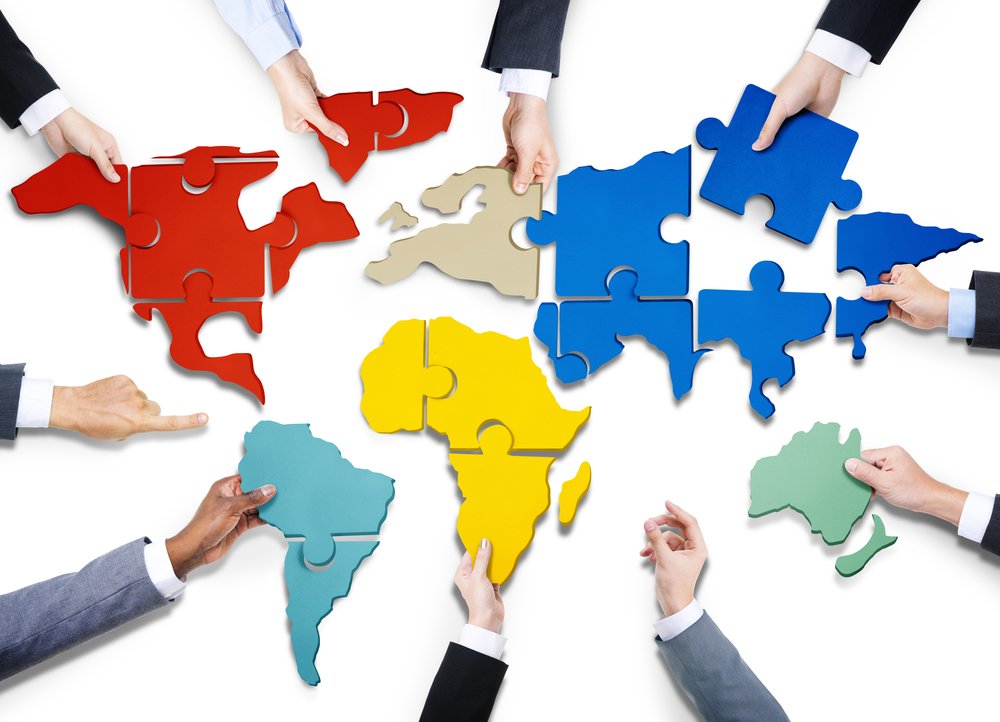International franchising

The idea of tapping into new global markets is financially appealing to any ambitious business owner.
For investors, the thought of being the sole owner of a string of successful franchises in your country is enticing. McDonald’s, Marriot, Hertz and Century 21 are but just a few everyday names that have leveraged international franchising to their great success.
International franchising, otherwise known as international licensing allows stand-out companies to enter new territories by using their brand and intellectual property (trademark and know-how) in return for royalties and product sales.
This form of strategic partnership encourages businesses to grow internationally with low-risk incentives. For the franchisor, it requires very little up-front investment as it's the franchisee who will have to satisfy the financial requirements in return for the keys to the company. In exchange the franchisee gains unprecedented access to an established brand, with the added benefit of proven know-how. Of course, there are no guarantees when it comes to new businesses. However, having the ongoing support of the franchise headquarters in your back pocket is a handy bonus. At the end of the day, it's in both parties’ best interest for the franchisee to succeed.
Here are some strategic questions to ask yourself before choosing the right expansion method for you:
- What’s the potential of the target market (one, two or several units. Is it in the dozens or even hundreds?) If you’re going to enter a huge market you may start with direct franchising, but this might evolve depending on the growth of the operation.
- Is the system ready for the expansion? Is everything adaptable 1:1 in the new market? Product, packaging, distribution, IT systems and other business solutions. How ready is your brand? (For example, have you researched the meaning of the name in the local language?)
- Do I have the ability to control my franchise effectively? (For example, the geographical distance, language and cultural differences, etc.)
With these questions in mind, let’s now look at the several ways international franchising is achieved.
Direct Franchise Agreement
The simplest is a direct franchise agreement. This is a direct contract between the franchisor (or sub-franchisor) and the franchisee. Similar to that of a domestic franchising agreement, direct franchising requires a lot of resources from the franchisor to assist in training, recruitment and the support process. The process is typically a centralised practice. This approach works most effectively when moving into similar cultures with the same cultural and legal norms. An example of this is Sweden to Norway – or even the United States to Canada.
Master Franchise Agreement
The most common way international franchising is conducted these days is through a master franchise agreement. This is more of a territorial approach where the franchisor grants exclusive rights for the franchisee to establish the brand in another country, state or region. The franchisee gets unprecedented access to a known brand, and with the know-how, has the potential to quickly take a market share of the new region. While for the franchisor, having a local person with local knowledge taking personal responsibility can help mitigate potential political and bureaucratic issues more easily in an unknown region - and even helps to minimise costs and risks involved with researching a new territory.
In a master franchise agreement, the franchisee pays a larger than normal initial fee to have the exclusive rights to a designated region. The master franchisee will have to open an agreed number of operational units in the region over a specific amount of time. Another benefit of being a master franchisee is the right to recruit other franchisees in their jurisdiction. In other words, the master franchisor becomes the middle link in the company system. Still not the king, but more like an earl over the land it covers. As such, the master franchisee then gets to retain all, or the majority of fees paid upwards from franchises in their territory. This kind of investment has the potential to be highly profitable if executed in the right market.
International agreements are governed through an International Franchise Agreement. Some of the downsides may include lengthy legal procedures shrouded in red tape and the potential added cost of legal and ongoing agency fees.
Subsidiary
A powerful way to conduct international franchising is when the franchisor creates a subsidiary company in the target country. This new offshoot will take full care of the development of the franchise network in the region. This strategy works for bigger markets with high potential. While this might be a slightly more expensive way to set up a new franchising system, it gives the company full control of their expansion. Furthermore, by incorporating local management with industry professionals it can lead to optimal outcomes across all aspects of business operations.
Joint-venture
Following on from the above method of international franchising is when the franchisor establishes a joint-venture company with a foreign partner (or company) that will develop the franchise network in the target market. This is a cheaper option than the subsidiary method and is useful for large, and, or distant markets. Benefits of a joint-venture include having a local partner with direct market knowledge, and the diversification of risk and financial burdens (for example, opening of company-owned pilot sites). But of course, this also means the gains will be divided.
Regional representative
The final way we will look at international franchising is when the franchisor transfers responsibilities to a local regional representative. This could be the first franchisee in the target market, of if there are a few - the biggest or marquee franchise. The cooperation with individual franchisees is on the basis of direct franchising. Business development may take a bit longer, however this method of international franchising only requires a small investment, as the regional representative receives a commission of the franchise fees taken by the franchisor.
Research
If it sounds too good to be true, it probably is! We recommend, as with any new business, to do your homework and research. Just as the company will investigate and analyse if you are the right master franchisee, you must also research to see if the company is the right place for your investment.
Don’t just assume because a company has worked successfully in one continent that it will automatically be successful in another. You must conduct in-depth market research looking into different demographics and even cultural norms. Then consider if you have the resources, but most importantly, the dedication to make it work - as international franchising is often more expensive from an investment point of view.
When training future franchisors, we ask them if they just want to sell their franchise abroad or actually develop it themselves. If they choose the first option and want to cash the business, master franchise is more common option. If a franchisor wants to develop their brand it will involve patience and higher investment – but as with big bets, they can pay off bigger in the long run.
Featured franchises
No featured franchises
Breaking news
Show all
Milano Cosmetics franchise overview
Milano Cosmetics offers a global franchise model for professional beauty salons with defined financial terms, operational support, and international p

REFAN franchise network
REFAN is a European cosmetics and perfume manufacturer offering a standardized franchise model based on private-label production and retail.

Neuhaus Chocolates franchise model
An established Belgian chocolate house offering a structured franchise concept built on heritage, premium quality and international brand recognition.

Green Line Clean
Green Line Clean offers an eco-friendly car wash franchise with clear fees, low operating costs and strong support for new investors.

